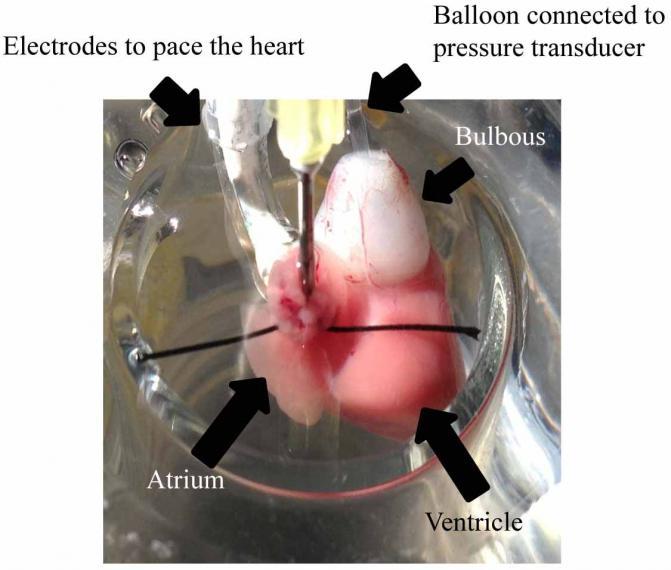Temperature-induced cardiac remodeling in fish

The body temperature of fish is the same as their environment. This means that a change in environmental temperatures, such as in the winter, results in a decrease in the physiological temperatures of fish. Such a change represents a significant challenge for temperate fish species, such as rainbow trout, that remain active in the winter as a decrease in temperature causes the heart to lose function.
Work in the Gillis Lab has been examining the strategies used by temperate fish to maintain cardiac function in the cold. This work, and that of others is the focus of a recent review written by Dr. Gillis and colleagues at the University of Manchester as well as Dr. Jordan Klaiman, a Guelph Alumni.
This review examines the response of the heart across multiple levels of biological organization. This includes examination of changes in gene expression, heart morphology and composition, as well as the function of the intact heart.
This work demonstrates that the heart of cold acclimated trout generates more contractile force at a faster rate than that of warm acclimated trout. As ambient temperature increases with global climate change, understanding the limit that fish can respond to acute and prolonged changes in temperature may be crucial to their long-term survival.
Another important finding of this work is that fish are able to manipulate cardiac connective tissue. Specifically, collagen in the heart was found to increase at low temperatures and decrease at higher temperatures. This is a relatively unique ability in vertebrates that has potential biomedical applications. In human hearts, collagen levels do not normally change but will increase following an injury to the muscle caused by myocardial infarction. This is a permanent condition that can lead to loss of heart function and eventual failure.
Current work in the Gillis lab is focusing on the cellular mechanisms that regulate collagen content of the trout heart. This work is looking at the role of signaling molecules affecting the activity of cardiac fibroblasts. These are the cells that deposit as well as degrade collagen in the heart. By understanding how changes in temperature alter the function of cardiac fibroblasts these experiments will provide novel insight into the unique abilities of the fish heart.